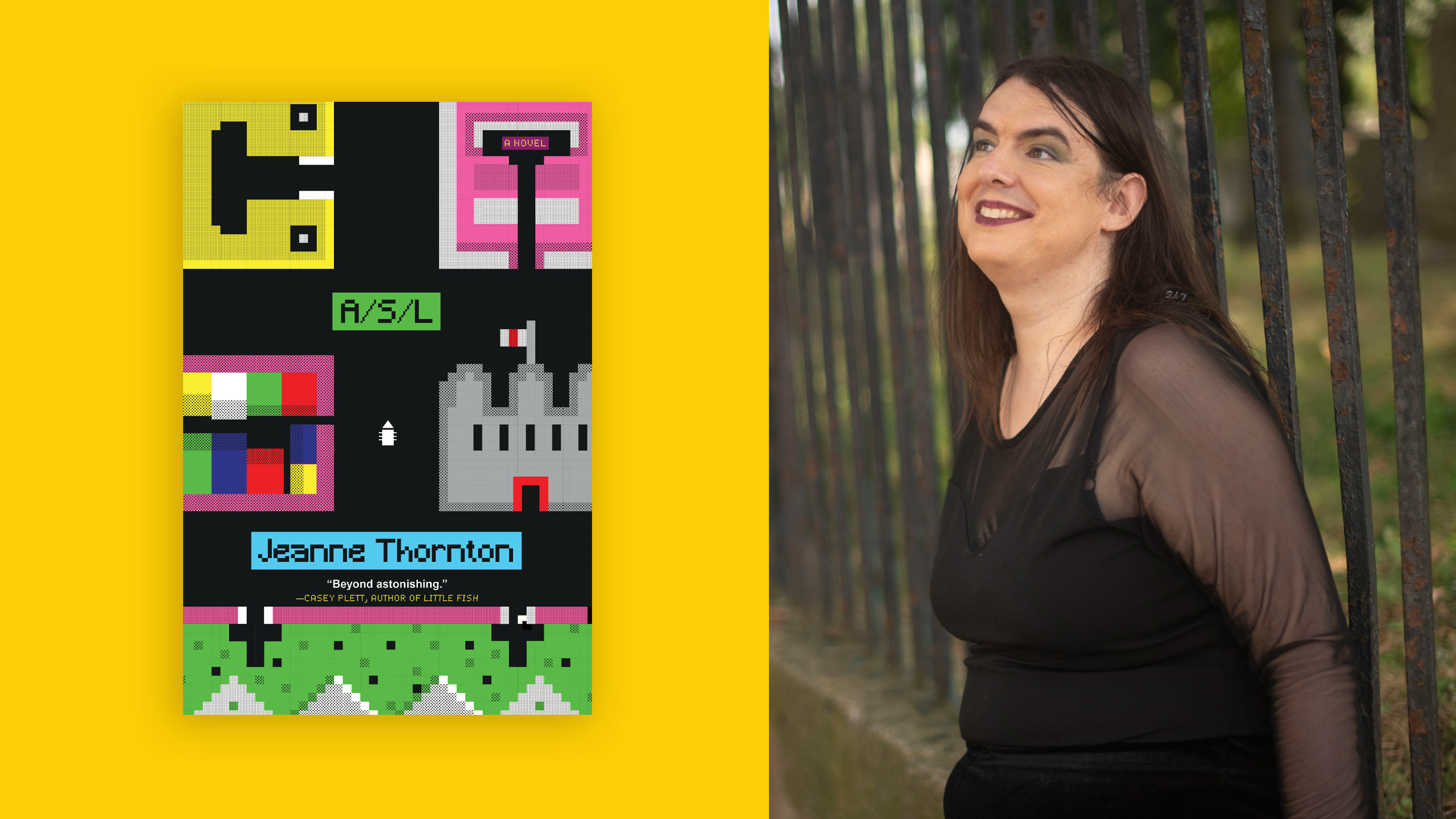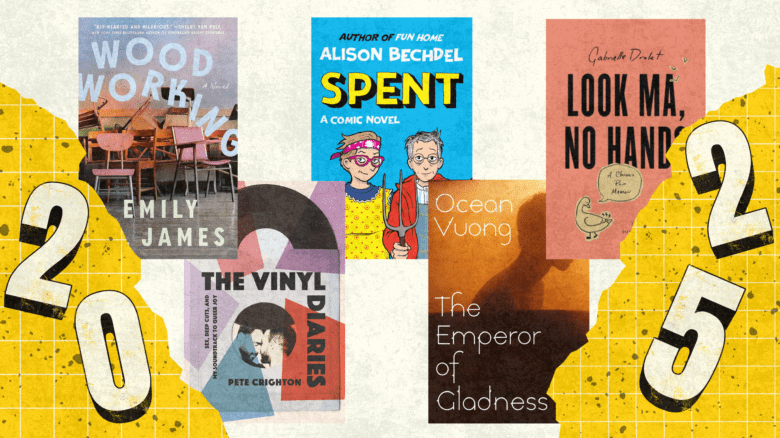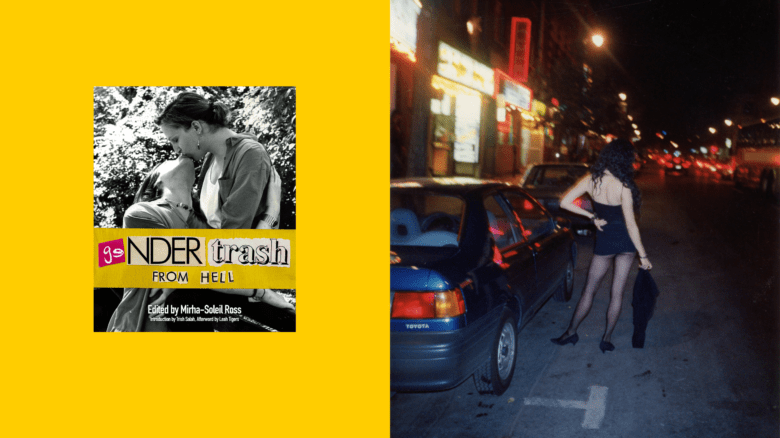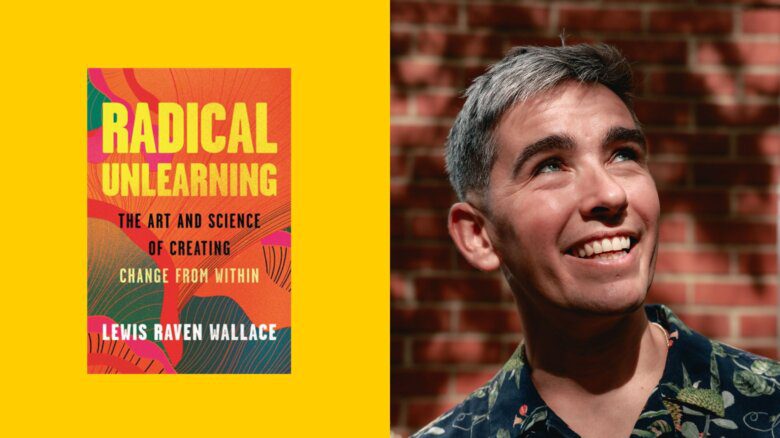Author Jeanne Thornton knows that her latest novel, A/S/L, may draw comparisons to Gabrielle Zevin’s Tomorrow, and Tomorrow, and Tomorrow, the 2022 bestseller about a group of friends who build a video game company together. Zevin and Thornton understand that the next generation of epic novels will have a thorny relationship with technology and the internet. Both books show how technology has impacted our lives—from the early internet where people could explore their identities and find community to the current iteration, which feels much more toxic.
A/S/L is about three teenage friends, Lilith, Sash and Abraxa, who meet online in 1998. They share a love of video games and decide to design their own, Saga of the Sorceress. Over a decade later, the three trans women, who have never met in person, have their teenage game unexpectedly come back into their lives.
Early in the novel, the three friends are teenagers, interacting only in chat rooms and private messages while building their video game. Their online interactions are complex and dramatic—Sash and Lilith discuss whether Lilith is trans, and Sash lets her internet friends believe she’s a cis girl. These early interactions show how the early era of the internet was a playground of possibility. In chat rooms and over email, Abraxa, Sash and Lilith find friendship and their gender identities in each other, while also creating a video game that others can play. For Thornton, that early era of the internet allowed you to try on a new identity without being confined to something that didn’t fit, she tells me over drinks.
Thornton, who has written three other novels, including 2021’s Summer Fun, was inspired by her own experience growing up during a time when the internet was brand new. In her youth, Thornton was a closeted trans woman growing up in Texas, and she used the internet as an escape. She wrote A/S/L to explore that experience, and the way her transness is “wrapped up with that,” she says. Thornton saw her teenage internet time as a way to create the kind of queer space many of us seek out as adults.
Thornton spent that era in online fandom communities, which allowed her to figure out her identity alongside others who were doing the same. She eventually came out as trans in 2010. She says she didn’t realize how much she’d buried the memories from that time, and writing A/S/L was a way to unpack them. “I had a friend, someone I knew from the community when I came out as trans. And this person was like, ‘You came out on LiveJournal in 2006.’ I don’t remember that at all. And I went back and looked, and at three in the morning there was this whole entry about confessing to be a girl, and I just blocked this out.”
For Thornton’s generation of trans people, playing video games was a way to examine their true gender identities. While video games can be written off as mere entertainment, they are also a powerful way to be able to learn about oneself in different ways. As Zevin also shows in Tomorrow, and Tomorrow, and Tomorrow, the video game can be a vessel for everything from dealing with adversity to creating community. For Abraxa, Lilith and Sash, it’s a place where they initially find community with one another and are able to harness that into a creative project. But with the ephemeral nature of gameplay, there’s also the option of finding yourself within the world and the characters of the game without larger societal baggage—something Thornton wanted to show in the novel. “My friend, [writer] Stephen Ira, has this joke about how trans men get fanfiction and trans women get video games,” says Thornton. “If you’re a trans woman, you can play video games [and] be a girl. It’s okay that you’re playing these people.”
A/S/L is for a trans audience. The characters are steeped in the trans experience; Lilith, for example, unwinds after work as an adult by spending time in trans-only spaces. But Thornton’s book is a valuable read for cis readers too. “It’s not for you,” says Thornton. “You’re reading across the power differential because it is going to enrich your sense of what’s going on in the world. If you’re in the truck, you don’t perceive who is under the truck. The only way you’re going to see that is to try to get better at listening and try to get better at checking the truck as you’re driving it. ”


 Why you can trust Xtra
Why you can trust Xtra


